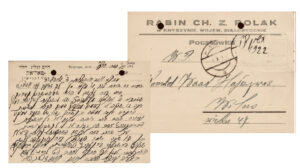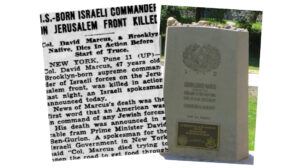Story of a Lifetime


In August this year, when my beloved Oma, Mrs. Greta (Malka) Rosenberg, suddenly passed away, I had only one coherent thought amid my tears: Why hadn’t I spent more time recording her stories? For years it was something I knew I should do, yet the thought Soon it might be too late failed to spur me into any real action.
Granted, as one of very few survivors of her illustrious Hungarian family and queen of an empire of three generations scattered across continents, Oma’s life stories were often all she spoke about with us grandchildren. Some family members even knew the details as well as she did.
Still, after she passed away, I felt regret. Was recording her stories an opportunity lost forever?
Peninah had a vastly different experience. She recalls her hometown visit for her mother’s hakamas matzeivah a couple of years ago. At dinner that night, she and her siblings passed around excerpts of a series of interviews with their mother that one of her brothers, the only sibling who lived in the same town as their parents, had conducted for a project he’d worked on shortly before she’d passed away. The selections included accounts of their family’s history, their mother’s viewpoints on various topics, her parenting advice, and funny stories about the kids when they were growing up.
“It was a poignant moment for all of us,” Peninah remembers. “We were never very close, but this brought us siblings together in a way that nothing else had. Even the most unsentimental among us hung on to every word, especially when we learned what had made our mother proud of us. At the end, my father, barely able to speak without breaking down, put his hand on my brother’s shoulder and simply said, ‘Thank you.’ ”
Why Do It?
Our family stories are intricate dramas woven with many threads, intertwining the hard times with the good times, the young and the old, yesterday’s hardships with the challenges of today.
Taking the time to learn about our family origins, let alone capturing the stories for posterity, may seem an insurmountable task, given the complexity and fast pace of our lives — and especially if the people whose stories we’re seeking are no longer around to share their tales.
That’s one of the reasons behind Manchester-based genealogist Rivka C. Goldblatt’s motivation to launch Jewish Family Research, an initiative that offers a range of services targeted at assisting people in their family research. Rivka’s experience goes back a decade; when she was just 15 years old, a sudden desire to find out who her great-grandparents were and how they lived led her to track down resource after resource until she’d collated quite a list. Her interest had been sparked — and Rivka was hooked.
Most of us can identify with that desire to hold on, to capture the things our parents and grandparents hold dear, and to share this legacy with our own children. Yet many believe that their lives are too different now, too far removed from those of their forebears, says Rivka, and that their grandparents’ lives have no bearing on their own.
“But that’s not true,” she says.
(Excerpted from Family First, Issue 620)
Oops! We could not locate your form.













